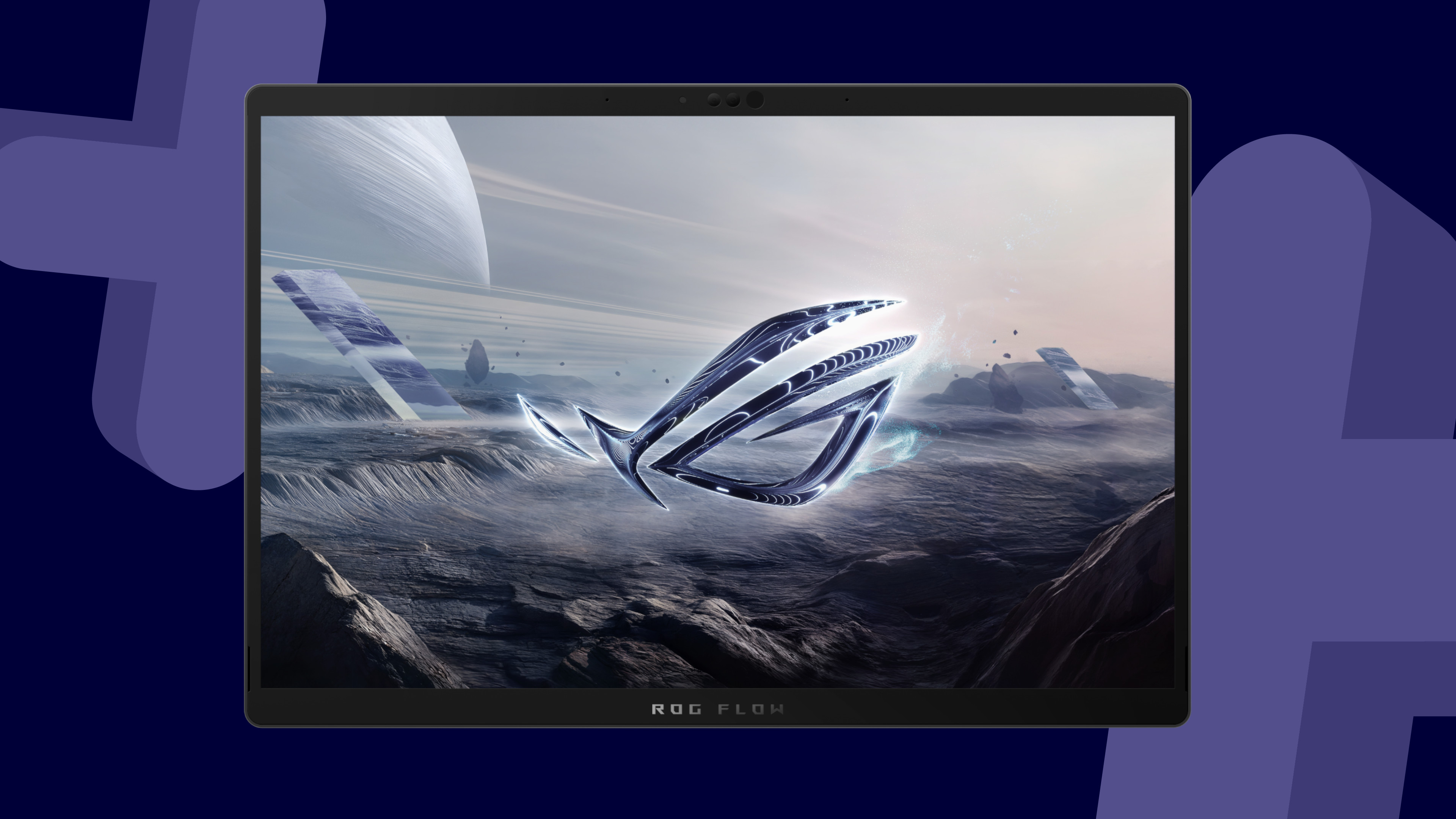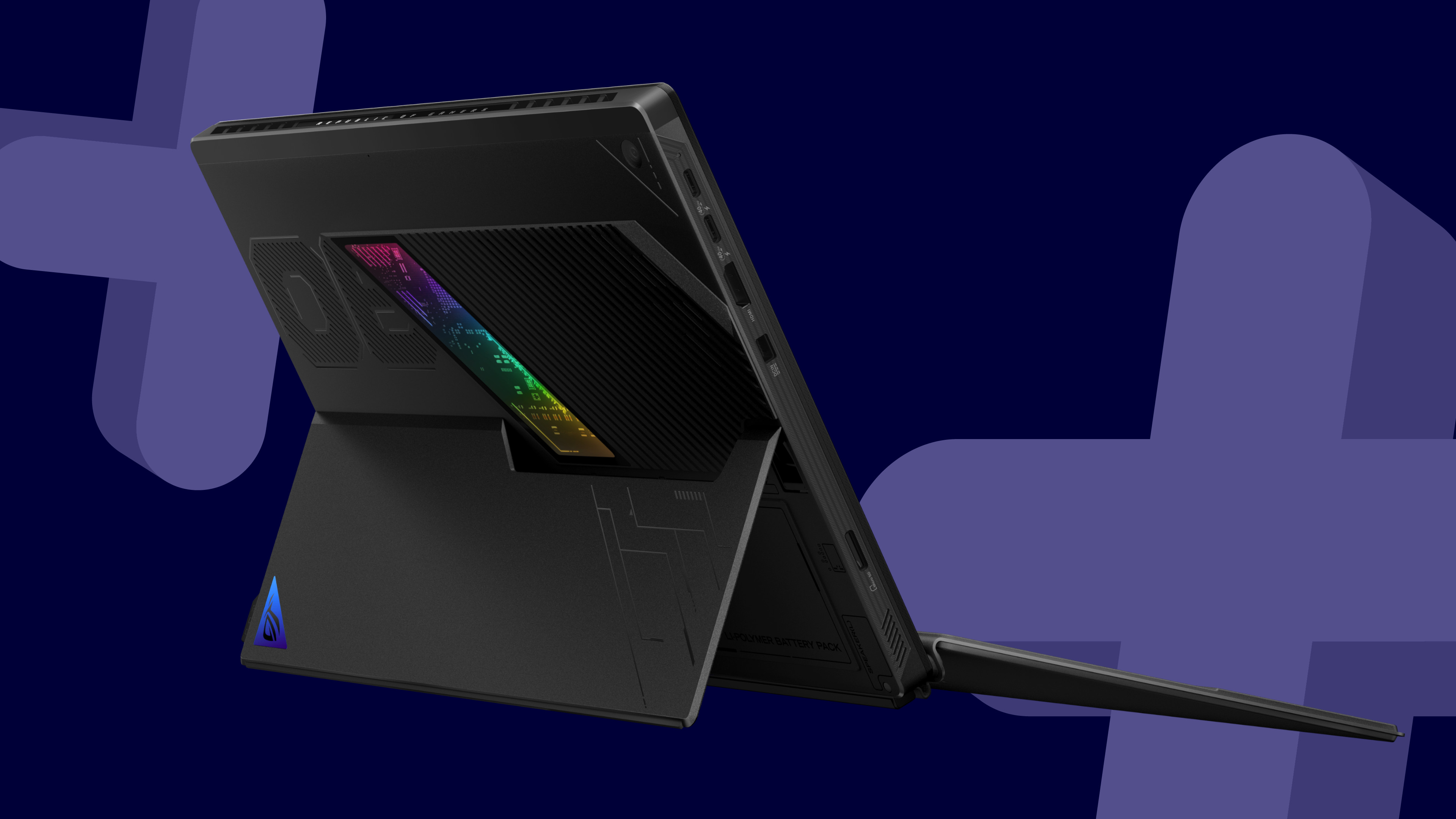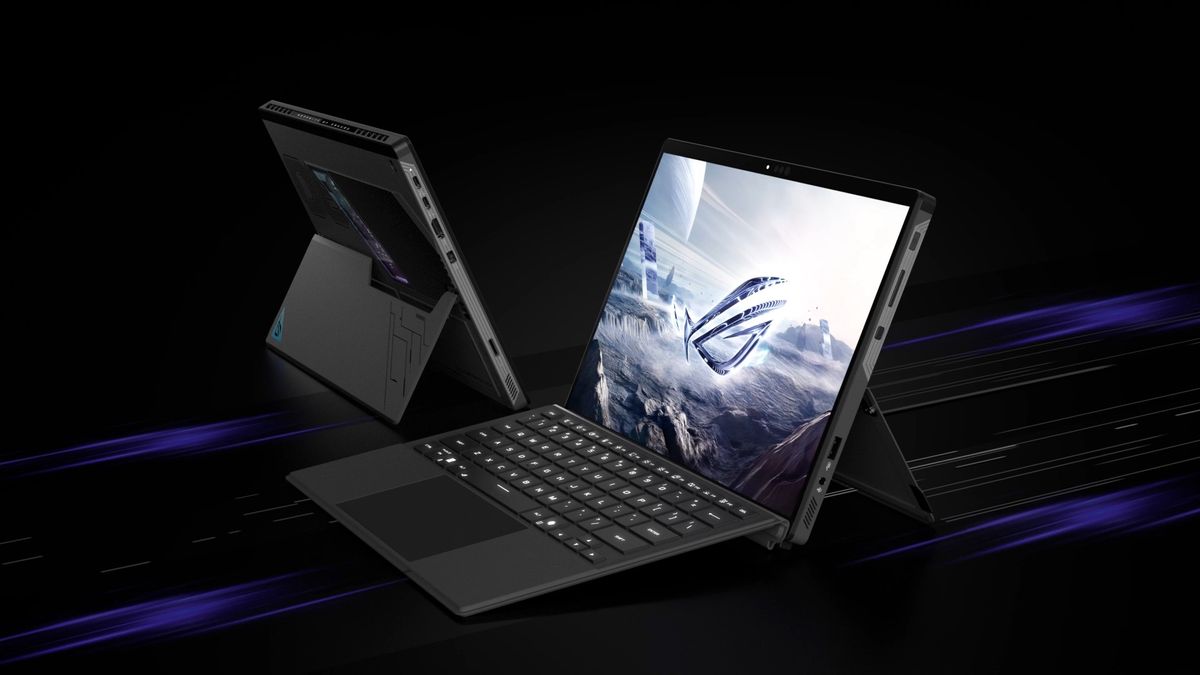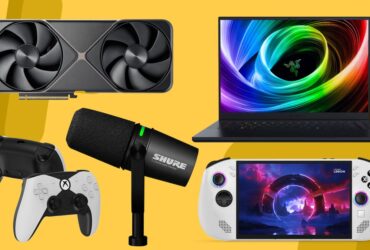The Asus ROG Z13 holds a special place in my heart. A full Windows tablet with a dedicated graphics card, 13-inch high refresh rate display, and a slimline build? That’s not something any other brand has been able to pull off, let alone keep on the market for three years. Asus has unveiled a new 2025 model at CES, and despite all the high-powered PCs hitting the airwaves this week, this is the device I’m checking the most.
The Asus ROG Flow Z13 hasn’t traditionally made sense when viewed against the best gaming laptops. It’s more expensive and less powerful – but the magic comes when you remove the keyboard. The 13-inch device has been the best gaming tablet on the market for years now, and I’m eager to see where the next step takes us.
The new tablet will feature an AMD Ryzen AI Max+ 395 chiplet processor featuring RDNA 3.5 GPU cores, whereas previous entries in the range have always relied on a dedicated graphics card instead.

These aren’t your Grandma’s integrated graphics, though. The Radeon 8060S system sits within AMD’s Ryzen AI Max ‘accelerated processing unit’, with the top-of-the-range Max Plus 395 model boasting 16 Zen 5 CPU cores and 40 RDNA 3.5 graphics cores. The cheaper Ryzen AI Max Plus 390 still packs a punch with 12 of those CPU cores and 32 for graphics.
In combining both the CPU and GPU, the 2025 Asus ROG Flow Z13 can draw from a single RAM store, with up to 128GB of LPDDR5X 8,000MHz memory powering the whole system (and up to 96GB VRAM allocated at a time). That’s some serious grunt built into a single-chip system – the new Z13 can push TDP up to 120W.
All of that comes together with a 2.5K resolution 13-inch Nebula display on top, running at a 180Hz refresh rate and 500 nits brightness. Efficiency is the name of the game here, though. The whole device is just 12mm thick, weighs in at 1.2kg, and still features a full CNC-milled solid metal chassis.
The key is that new vapor chamber, keeping everything cool with super light stainless steel and copper materials covering 54% more of the motherboard compared to the previous model. 0.1mm fins and Asus’s second-gen Arc Flow Fans keep air moving without adding to the overall chassis silhouette. There’s even dedicated air routing behind the main touchscreen, to ensure that Corning Gorilla Glass 5 panel stays comfortable to the touch.

Asus has taken some cues from its gaming handheld division with this device. After all, the tablet is blurring the already smudged lines between traditional handheld vs PC play. I’m a big fan of both, having spent most of my free time trading out a full laptop system for my Asus ROG Ally over the last year. The Asus ROG Flow Z13 will likely remain a niche product – it doesn’t quite scratch that handheld itch, and it’s not going to outperform RTX 5090 laptops this year (though I haven’t had my hands on it yet). But somewhere in the middle there will be folk like me who just love a versatile, efficient way to play – and that’s where the Z13 finds its family.
If you’re after more portable play options, check out everything we know about the Nintendo Switch 2, or take a look at the best gaming phones and the best mobile controllers.











Leave a Reply